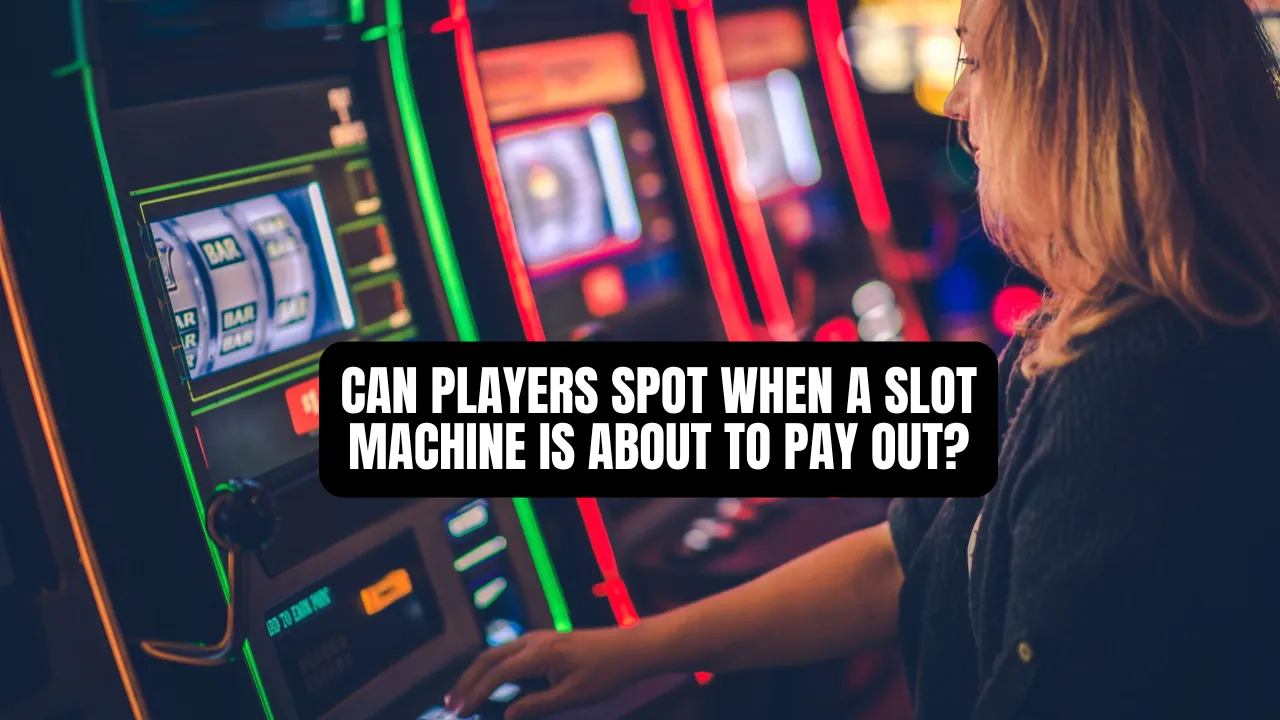Slot machines are some of the most iconic features of any casino floor, both offline and online. The flashing lights, immersive sounds, and the thrill of spinning reels create an atmosphere that draws millions of players worldwide. Yet one of the most persistent questions gamblers ask is whether it’s possible to tell when a slot machine is about to pay out.
I’ve been writing and researching in the gambling space for years, and I can say this question comes up more often than almost any other. Players swap stories of “hot” and “cold” machines, while others swear by certain patterns or timing strategies. But do these beliefs hold any weight in a world where slot machines are designed around mathematics and randomization? Let’s explore the facts, the myths, and the psychology behind slot payouts.
Understanding How Slot Machines Actually Work
To understand whether players can predict payouts, it’s essential to know how slot machines function. Modern slots — both physical cabinets and digital versions — rely on Random Number Generators (RNGs). These algorithms ensure that every spin is independent of the last.
That means if you’ve just watched a machine go 100 spins without a jackpot, the 101st spin is no more or less likely to hit than the very first. The RNG constantly cycles through numbers, producing thousands of potential outcomes every second. When you press “spin,” the game locks in on whatever combination the RNG happens to be on at that moment.
So from a purely mathematical standpoint, there’s no way to predict with certainty when a slot will pay. Still, casinos are smart: they build machines to feel like they might be “due,” which is why myths about spotting payouts continue to thrive.
The Myths of Hot and Cold Machines
Walk through any busy casino, and you’ll hear players talk about machines being hot (ready to pay) or cold (unlikely to pay). Some gamblers will even change seats if a machine hasn’t paid out in a while, hoping the next one is “luckier.”
In reality, this is pure superstition. The RNG system makes each spin independent. Just because a jackpot hasn’t landed recently doesn’t mean it’s any closer to happening. But these myths persist because humans are naturally wired to look for patterns, even where none exist. Psychologists call this “gambler’s fallacy,” and slot machines are designed in ways that can subtly feed into that illusion.
For example, near misses — where the reels stop just one symbol away from a jackpot — make players feel like they were “close” to winning. In truth, it’s just as random as any other result. But the emotional impact convinces many that a big win is just around the corner.
Why People Believe They Can Tell
Even though the math says otherwise, plenty of players still believe they can spot a payout coming. Part of this belief comes from the stories of people who sat down at a machine right after someone walked away and then hit a jackpot.
From the outside, it looks like the previous player “just missed” their win. But really, the win was always determined at the exact moment of pressing the spin button. A fraction of a second’s difference — even the time it takes to blink — would have changed the result.
Another reason players hold on to this belief is that it gives them a sense of control in a game that is otherwise pure chance. Feeling like you can influence the outcome, even when you can’t, can make the game more exciting.
The Role of Payout Percentages and RTP
While you can’t predict individual spins, you can understand how machines are designed to perform in the long run. Every slot machine has what’s called a Return to Player (RTP) percentage. This number tells you, over millions of spins, how much of the money wagered will be paid back to players.
For example, a slot with a 96% RTP will return, on average, $96 for every $100 wagered — but that’s calculated across countless spins. In the short term, anything can happen. You might win a jackpot on your first try or lose ten spins in a row. RTP only helps you understand the long-term odds, not the timing of payouts.
Casinos, especially those operating online, highlight RTP figures to attract informed players. It’s one of the few reliable tools gamblers have for choosing a machine with decent odds.
Comparing Land-Based and Online Play
One interesting difference I’ve noticed between land-based and online slots is how players perceive payouts. In physical casinos, the environment — flashing lights, people cheering, slot attendants rushing over — reinforces the idea that machines are “paying out.” In contrast, online platforms are quieter, so the myths don’t spread as quickly.
That said, online players face the same question: can you tell when a digital slot will pay out? The answer is the same: no, not reliably. Online slots use the same RNG principles as their land-based counterparts.
For players who like exploring different platforms, some even look at non uk registered casinos to see if their odds feel any different. These casinos often offer larger bonuses or higher advertised RTPs, which might make the experience seem more rewarding, but the randomness of payouts remains the same.
Recognizing the Psychology of Slot Design
One of the reasons this question persists is because slot machines are deliberately designed to make players feel like a win is near. Developers use sounds, animations, and reel-stopping patterns to trigger emotional responses.
When a slot plays celebratory music even for small wins, it reinforces the idea that something big could be coming. Near misses create tension and hope, while bonus features or free spins add excitement even if the base game isn’t paying much. These design tricks are not about rigging results — the randomness is still fair — but about keeping players engaged for longer.
Understanding these psychological triggers can help players see why they believe machines are “warming up” when really, they’re just responding to clever design.
Practical Advice for Slot Players
So if you can’t predict payouts, what’s the best approach to playing slots? From my perspective, it comes down to three things: choosing games with fair RTPs, managing your bankroll wisely, and treating slots as entertainment rather than a guaranteed way to make money.
Slots can be fun, immersive, and occasionally very rewarding, but they’re games of chance. Accepting that randomness is part of the thrill helps you enjoy the experience without falling into myths that can lead to overspending.
If you ever find yourself believing a machine is “due,” take a step back and remind yourself of how RNGs work. The best win is often simply walking away having enjoyed the play without chasing outcomes you can’t control.
Conclusion
So, can players spot when a slot machine is about to pay out? The simple answer is no. Every spin is independent, governed by RNGs that make predictions impossible. What players can do, however, is understand how slots are designed, recognize the psychological triggers at play, and make smarter choices about where and how they play.
The myths of hot and cold machines will probably never go away, and in some ways, that adds to the lore and excitement of casino gaming. But the truth is that slot payouts aren’t about timing or patterns — they’re about randomness, chance, and the thrill of playing.
For players who embrace this reality, slots remain one of the most exciting and entertaining forms of gambling available, offering suspense with every spin and the occasional surprise win when you least expect it.








